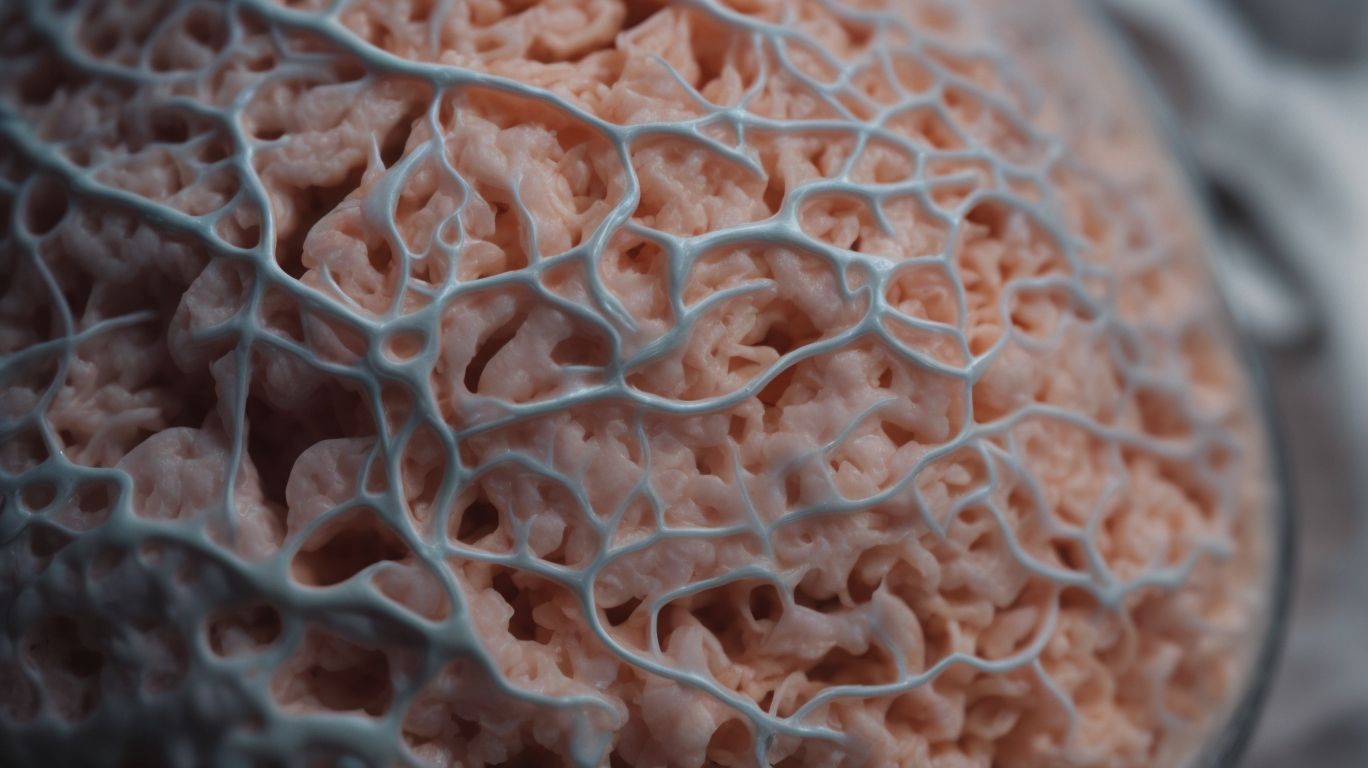Have you ever wondered about the intricate workings of the human brain and how they impact our thoughts, behaviors, and emotions? In this article, we will delve into the fascinating world of the frontal lobe, exploring its functions and impacts on psychology.
From motor control and decision making to personality traits and mental health disorders, the frontal lobe plays a crucial role in shaping who we are. Stay tuned to discover how you can keep your frontal lobe healthy and functioning at its best.
Contents
- 1 What Is the Function of the Frontal Lobe?
- 2 How Does the Frontal Lobe Impact Psychology?
- 3 What Happens When the Frontal Lobe Is Damaged?
- 4 How Can We Keep Our Frontal Lobe Healthy?
- 5 Frequently Asked Questions
- 5.1 What is the frontal lobe and why is it important in psychology?
- 5.2 What are the main functions of the frontal lobe?
- 5.3 How does damage to the frontal lobe affect behavior and cognition?
- 5.4 What is the impact of frontal lobe dysfunction on mental health?
- 5.5 Can the frontal lobe be trained or improved?
- 5.6 How does the frontal lobe develop and change over the lifespan?
What Is the Function of the Frontal Lobe?
The frontal lobe, a critical brain region, plays a pivotal role in functions such as motor control, decision making, problem solving, and emotional regulation.
Motor control, a fundamental aspect of the frontal lobe’s functions, involves coordinating movements and executing skilled actions. This area also contributes significantly to decision-making processes by evaluating choices, considering consequences, and setting goals for the future. The frontal lobe aids in problem-solving skills, allowing individuals to analyze, plan, and implement strategies to overcome challenges efficiently. Emotional regulation is another vital function of this region, helping individuals manage their feelings, impulses, and behavioral responses in various situations.
Motor Control
Motor control is a fundamental function of the frontal lobe, encompassing the coordination and regulation of muscle movements through intricate neural pathways within the brain.
The frontal lobe plays a crucial role in not just simple movements but also complex activities that require precise coordination, such as playing a musical instrument or typing on a keyboard. It integrates information from various sensory areas, processes it, and then initiates motor responses accordingly. Its involvement in cognitive processes like decision-making, problem-solving, and emotional regulation further highlights its significance in shaping human behavior and actions.
Decision Making
Decision making, a complex cognitive process, heavily relies on the functionality of the frontal lobe, influencing choices, judgments, and actions based on memory and impulse control.
The frontal lobe, situated at the front of the brain, plays a crucial role in various cognitive functions such as reasoning, problem-solving, and planning. It is responsible for organizing information from other brain regions and integrating it to make well-informed decisions.
The frontal lobe is closely linked to memory storage mechanisms, aiding in the retrieval of past experiences and information necessary for making choices. This region also contributes significantly to regulating impulse control, helping individuals resist immediate gratification in favor of long-term goals.
Problem Solving
Problem-solving abilities are closely tied to the frontal lobe’s cognitive functions, enabling individuals to analyze, strategize, and implement solutions through critical thinking and skillful processing.
The frontal lobe plays a crucial role in higher-level cognitive functions like problem-solving, decision-making, and planning. It serves as the control center for executive functions, overseeing reasoning, judgment, and impulse control.
When the frontal lobe is functioning optimally, individuals exhibit sharper strategic thinking and enhanced skill development, enabling them to navigate challenges and make informed choices. Dysfunction in this region can result in difficulties with problem-solving, goal-setting, and adapting to new situations.
Emotional Regulation
Emotional regulation, a crucial aspect of mental health, is intricately linked to the frontal lobe’s ability to monitor and modulate emotions, contributing to overall well-being and psychological stability.
The frontal lobe plays a vital role in processing and controlling emotions, aiding in decision-making, problem-solving, and social interactions. It assists in recognizing emotional cues, interpreting them, and formulating appropriate responses.
The frontal lobe contributes to impulse control, empathy, and self-awareness, all of which are essential components of emotional regulation. Dysfunction in this area can lead to difficulties in managing stress, anxiety, and emotional outbursts.
Understanding the significance of the frontal lobe in emotional regulation is crucial for psychologists, therapists, and researchers in the mental health field to develop effective interventions and treatments.
How Does the Frontal Lobe Impact Psychology?
The frontal lobe’s influence on psychology is profound, affecting personality traits, cognitive abilities, social behavior, and the development of mental health disorders.
The frontal lobe plays a critical role in shaping an individual’s unique personality, influencing decision-making processes, emotional responses, and overall behavior. It is involved in regulating impulsivity, planning, reasoning, and regulating social interactions.
The frontal lobe is crucial for memory formation and retrieval, allowing individuals to store and recall information efficiently. Damage to this area can result in memory deficits and impairments in executive functions, such as organization and problem-solving.
Research has linked abnormalities in the frontal lobe to various mental health disorders like depression, schizophrenia, and ADHD, highlighting the importance of understanding its functions for diagnosing and treating these conditions effectively.
Personality Traits
Personality traits are intricately linked to the frontal lobe’s functions, shaping individual characteristics, judgments, and the ability to exercise self-control.
The frontal lobe plays a crucial role in regulating emotions, decision-making processes, and social behavior, all of which contribute to an individual’s unique personality. This part of the brain is responsible for rationalizing choices, processing consequences, and understanding moral dilemmas.
In essence, it acts as a control center for managing impulsive behaviors and forming moral compasses that dictate one’s actions and reactions. Neuroscientists have identified how damage or irregularities in the frontal lobe can lead to changes in personality traits, affecting empathy, social interaction, and overall behavior.
Cognitive Abilities
Cognitive abilities, including reasoning, memory, and problem-solving skills, are heavily influenced by the frontal lobe’s neural networks and cognitive processing mechanisms.
The frontal lobe, located at the front of the brain, plays a crucial role in executive functions and higher-order thinking. It is responsible for decision-making, planning, and controlling emotions. Frontal lobe development is essential during childhood and adolescence as it impacts skills development and social behavior. This brain region is pivotal in critical thinking processes, allowing individuals to analyze situations, evaluate options, and make sound judgments.
Social Behavior
Social behavior is intricately tied to the frontal lobe’s functions, influencing interactions, communication, and social cognition through complex neural pathways.
The frontal lobe, located at the front of the brain, plays a crucial role in regulating various aspects of social behavior. It is responsible for processes such as decision-making, impulse control, and personality expression, all of which significantly impact how individuals engage with others.
The frontal lobe is vital for interpreting social cues, understanding emotions, and engaging in appropriate social responses. This intricate network of neural pathways within the frontal lobe allows individuals to navigate complex social situations with empathy, understanding, and effective communication.
Mental Health Disorders
The frontal lobe’s dysfunctions can contribute to the development of various mental health disorders, manifesting in cognitive symptoms that require specialized treatment and care.
These dysfunctions in the frontal lobe, located in the front part of the brain, are linked to executive functions such as decision-making, impulse control, and emotional regulation. When impaired, individuals may experience challenges in these areas, leading to disorders like ADHD, schizophrenia, and bipolar disorder.
Common symptoms of frontal lobe dysfunction include difficulties in problem-solving, reasoning, and attention. Cognitive impairments like memory loss and decreased inhibitions can significantly impact daily functioning and quality of life. Engaging in appropriate treatments and therapies tailored to address these specific impairments is crucial in managing these conditions effectively.
What Happens When the Frontal Lobe Is Damaged?
Damage to the frontal lobe can result in significant changes in behavior and personality, leading to various symptoms that impact cognitive functions and overall well-being.
Frontal lobe damage often leads to difficulties in decision-making, planning, and self-regulation. Individuals may exhibit impulsivity, lack of inhibition, and emotional dysregulation. In some cases, changes in social behavior, such as increased aggression or apathy, may manifest. Cognitive impairments like difficulty concentrating, shifting focus, or problem-solving can also be observed. Memory deficits and reduced ability to interpret social cues are common consequences. The ramifications of frontal lobe damage underscore the essential role this brain region plays in regulating behavior and cognition.
Changes in Behavior and Personality
Frontal lobe damage can induce profound changes in behavior and personality, altering traits, emotional responses, and decision-making abilities due to neurological disruptions.
When the frontal lobe is damaged, it can lead to difficulties in regulating emotions such as anger, anxiety, and sadness. Individuals may exhibit impulsive behaviors, lack of inhibition, and poor judgment. This can result in a lack of empathy and social awareness, affecting relationships and interactions with others. Decision-making processes may also be impaired, leading to difficulties in planning, organizing, and problem-solving. The impact of frontal lobe damage on behavior and personality can be complex and challenging to manage, requiring specialized care and intervention.
Impaired Decision Making and Problem Solving
Damage to the frontal lobe often leads to impaired decision-making and problem-solving abilities, affecting cognitive skills, reasoning processes, and strategic thinking.
Individuals with frontal lobe damage may struggle with inhibiting impulsive responses, leading to poor decision-making outcomes in various aspects of life. Their cognitive impairments can manifest in difficulties assessing risks and rewards, often resulting in suboptimal choices. Reasoning deficits due to the damage may hinder their ability to evaluate complex situations objectively, impacting their problem-solving skills.
Challenges in strategic thinking may arise, as the frontal lobe plays a crucial role in planning and executing long-term goals. Without proper functioning of this brain region, individuals may find it hard to develop and implement effective strategies, affecting their overall ability to navigate intricate tasks and situations.
Difficulty Controlling Emotions
Frontal lobe damage can lead to difficulties in controlling emotions, resulting in emotional dysregulation, mood swings, and challenges in managing affective responses.
When the frontal lobe is damaged, individuals may find it challenging to regulate their emotions effectively. This can manifest as sudden mood swings, where the person experiences drastic shifts in emotional states without apparent triggers. Managing affective responses, such as anger, sadness, or joy, becomes an arduous task as the brain’s capacity to modulate these reactions is compromised. Emotional dysregulation can interfere with daily functioning, social interactions, and overall well-being, highlighting the crucial role the frontal lobe plays in emotional control.
Development of Mental Health Disorders
Frontal lobe damage increases the risk of developing mental health disorders, necessitating specialized treatments and interventions to address the cognitive and emotional symptoms.
Damage to the frontal lobe, a critical area of the brain responsible for decision-making, problem-solving, and emotional regulation, can manifest in various mental health conditions such as depression, anxiety, impulsivity, and altered social behavior. Individuals with frontal lobe damage may experience cognitive deficits like poor judgment, lack of impulse control, and difficulty in emotional expression.
Therapeutic approaches for managing frontal lobe damage-related mental health disorders often involve a combination of psychotherapy, medication, and cognitive rehabilitation strategies. Developing personalized treatment plans tailored to the individual’s specific symptoms and functional impairments is crucial in improving their overall quality of life and enhancing adaptive skills.
How Can We Keep Our Frontal Lobe Healthy?
Maintaining the health of the frontal lobe is essential for preserving cognitive abilities, memory functions, and emotional well-being, with lifestyle choices and preventive measures playing a crucial role.
One effective strategy for optimizing frontal lobe health is engaging in regular mental exercises such as puzzles, crosswords, and learning new skills. These activities help stimulate brain function and promote neuroplasticity, enhancing cognitive performance. Maintaining a balanced diet rich in antioxidants, omega-3 fatty acids, and vitamins can support brain health. Physical exercise is also crucial as it boosts blood flow to the brain, facilitating optimal cognitive function. Incorporating relaxation techniques like mindfulness and meditation can reduce stress levels, which is beneficial for overall brain health.
Exercise Regularly
Regular exercise is a potent way to support frontal lobe health, promoting cognitive abilities, emotional well-being, and overall brain function through physical activity.
Engaging in regular physical activity has been shown to enhance blood flow to the brain, which leads to improved cognitive function and better concentration. Exercise triggers the release of endorphins, often referred to as ‘feel-good’ hormones, which can reduce stress, anxiety, and symptoms of depression, thereby boosting emotional well-being. Consistent workouts have been linked to the growth of new brain cells and improved neural connectivity, ultimately supporting overall brain health.
Eat a Balanced Diet
Maintaining a balanced diet is crucial for supporting frontal lobe health, ensuring optimal memory functions, cognitive abilities, and overall brain well-being through nutrient-rich foods.
The frontal lobe, located at the front of the brain, plays a vital role in decision-making, problem-solving, and social behavior. A diet rich in antioxidants such as berries, leafy greens, and nuts can help protect the frontal lobe from oxidative stress and inflammation. Omega-3 fatty acids found in fish and flaxseeds are essential for promoting healthy brain cell structure and function.
Engage in Mental Stimulation
Mental stimulation through challenging activities and cognitive exercises is vital for maintaining frontal lobe health, enhancing memory, cognitive skills, and neural connectivity.
Engaging in activities like puzzles, crosswords, or learning a new skill can effectively stimulate neural networks within the frontal lobe, promoting cognitive function and memory retention. Through consistent mental challenges, individuals can strengthen their executive functions, such as planning, decision-making, and problem-solving, which are all controlled by this significant brain region.
Studies have shown that regular mental stimulation can boost neuroplasticity in the frontal lobe, allowing for improved adaptability and learning capacity. Creating a stimulating environment that encourages intellectual pursuits can have long-lasting benefits, not only in the present but also in maintaining cognitive vitality and brain health as one ages. The concept of ‘use it or lose it’ truly applies to the brain, especially when it comes to the frontal lobe.”
Practice Stress Management Techniques
Effective stress management techniques are essential for safeguarding frontal lobe health, promoting cognitive resilience, emotional well-being, and overall brain health.
Chronic or severe stress can have detrimental effects on the frontal lobe, the part of the brain responsible for decision-making, problem-solving, and emotional regulation. By implementing strategies such as mindfulness meditation, physical exercise, and adequate sleep, individuals can reduce the impact of stress on their brain.
When stress levels are high, the frontal lobe can be compromised, leading to impaired judgment, emotional instability, and decreased cognitive function. Prioritizing stress management not only enhances daily functioning but also protects long-term brain health and resilience.
Frequently Asked Questions
What is the frontal lobe and why is it important in psychology?
The frontal lobe is a part of the brain that plays a crucial role in regulating various cognitive functions such as decision making, problem solving, and social behavior. It is considered the “control center” of the brain and is essential for our overall psychological functioning.
What are the main functions of the frontal lobe?
The frontal lobe is responsible for a wide range of functions, including motor control, emotional regulation, higher cognitive processes, and personality expression. It also plays a significant role in working memory and executive functioning.
How does damage to the frontal lobe affect behavior and cognition?
Damage to the frontal lobe can cause significant changes in behavior and cognition. Depending on the location and extent of the damage, it can lead to issues with impulse control, decision making, planning, and emotional regulation. It can also impact memory, attention, and problem-solving abilities.
What is the impact of frontal lobe dysfunction on mental health?
Frontal lobe dysfunction has been linked to a variety of mental health issues, including depression, anxiety, and bipolar disorder. It can also contribute to the development of personality disorders and addiction. Understanding the role of the frontal lobe can help in diagnosing and treating these conditions.
Can the frontal lobe be trained or improved?
Research suggests that certain activities, such as mindfulness meditation and cognitive training, can enhance the functioning of the frontal lobe. It is also believed that engaging in regular physical exercise and maintaining a healthy diet can support the overall health of the frontal lobe.
How does the frontal lobe develop and change over the lifespan?
The frontal lobe undergoes significant development and changes throughout our lifespan. It continues to develop well into our twenties and thirties and can be affected by various factors, such as genetics, environment, and experiences. As we age, the frontal lobe may also experience some decline in function.



